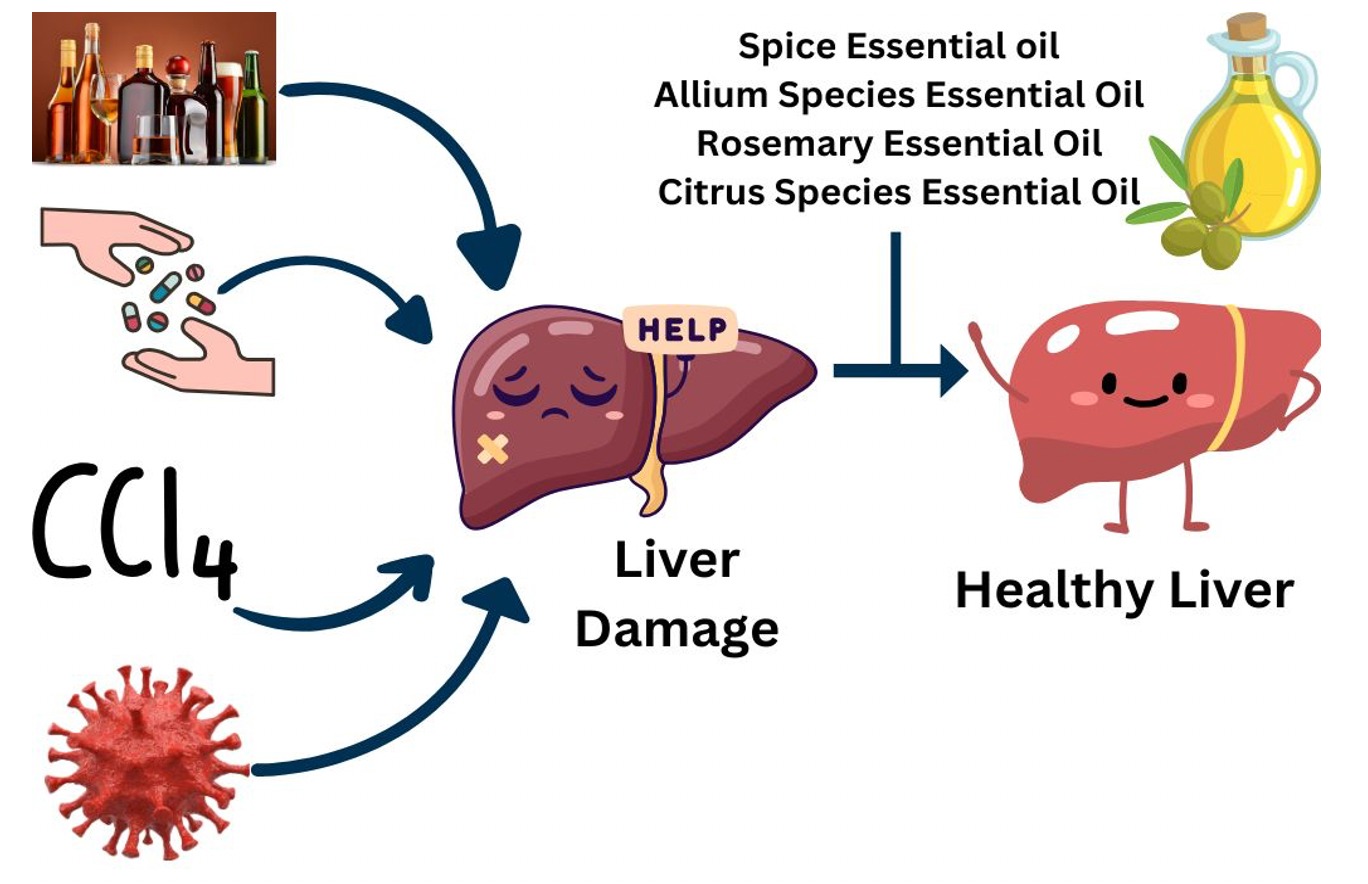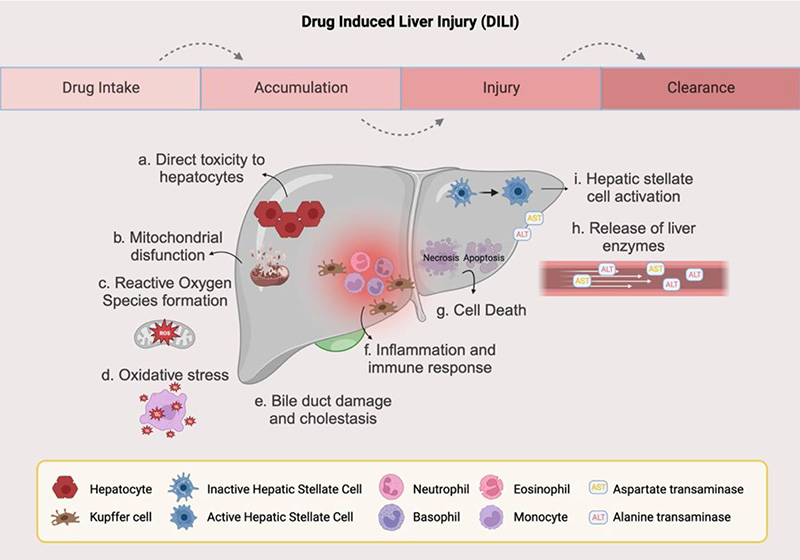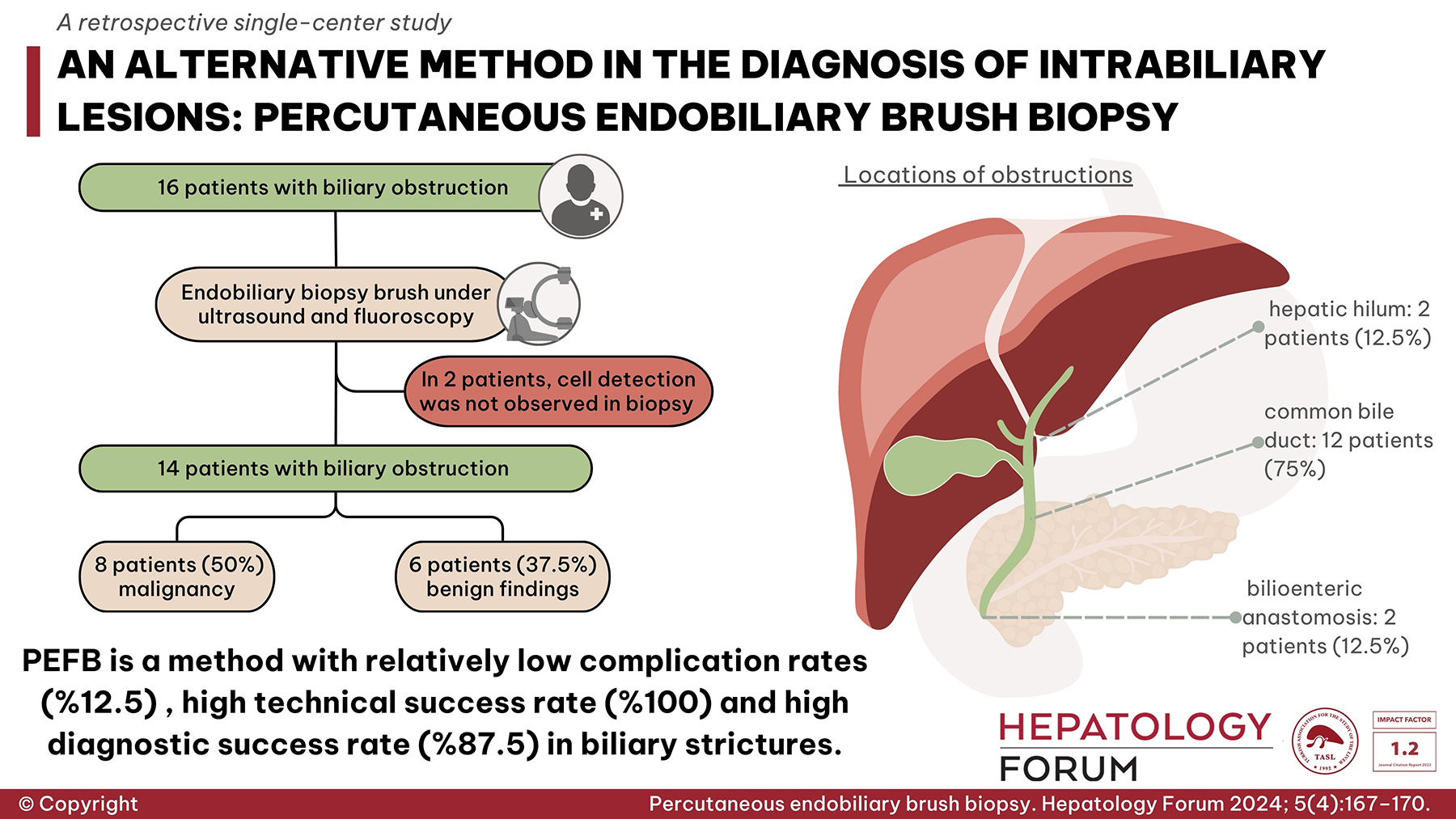2Department of Gastroenterology, Hacettepe University School of Medicine, Ankara, Turkiye
3Department of Pathology, Hacettepe University School of Medicine, Ankara, Turkiye
Abstract
Background and Aim: Numerous studies have demonstrated associations be-tween hepatocellular carcinoma (HCC)-related features and markers such as glypican-3 (GPC3), heat shock protein 70 (HSP70), CD34, and glutamine syn-thetase (GS). In this study, we aimed to quantify these markers in the tissues of patients with cirrhosis or advanced fibrosis due to chronic hepatitis B (CHB).
Material and Methods: A retrospective review was conducted on patients with CHB who developed pathologically confirmed HCC and underwent surgical resection between 2003 and 2013. A total of 24 patients who had paired malignant and surrounding cirrhotic tissue samples were included. Liver tissues were categorized as pre-HCC cirrhotic tissue, peritumoral cirrhotic tissue, and malignant HCC tissue. Non-cirrhotic liver samples from CHB patients served as controls.
Results: GPC3 staining was observed to be strong in 80% of HCC tissues and was positive in 70% of cirrhotic tissue surrounding HCC. In cirrhot-ic tissue 44 months prior to HCC development, 60% of cases were GPC3 positive. In non-cirrhotic chronic viral hepatitis, 20% of cases were GPC3 positive. GPC3, CD34, and GS showed significantly stronger staining in malignant versus control tissue (p<0.05). CD34 showed the highest dis-criminatory performance for malignant versus cirrhotic tissue (sensitivity=91.7%, specificity=91.7%), while GPC3 had the highest sensitivity (83.4%) in differentiating malignant from non-cirrhotic tissue.
Conclusion: GPC3 expression may be a predictive marker for HCC devel-opment in patients with CHB-related cirrhosis. CD34 also has considerable accuracy in differentiating HCC from cirrhotic and non-cirrhotic tissues, supporting a role for use in HCC detection.





 Yusuf Ozturk1
Yusuf Ozturk1 









